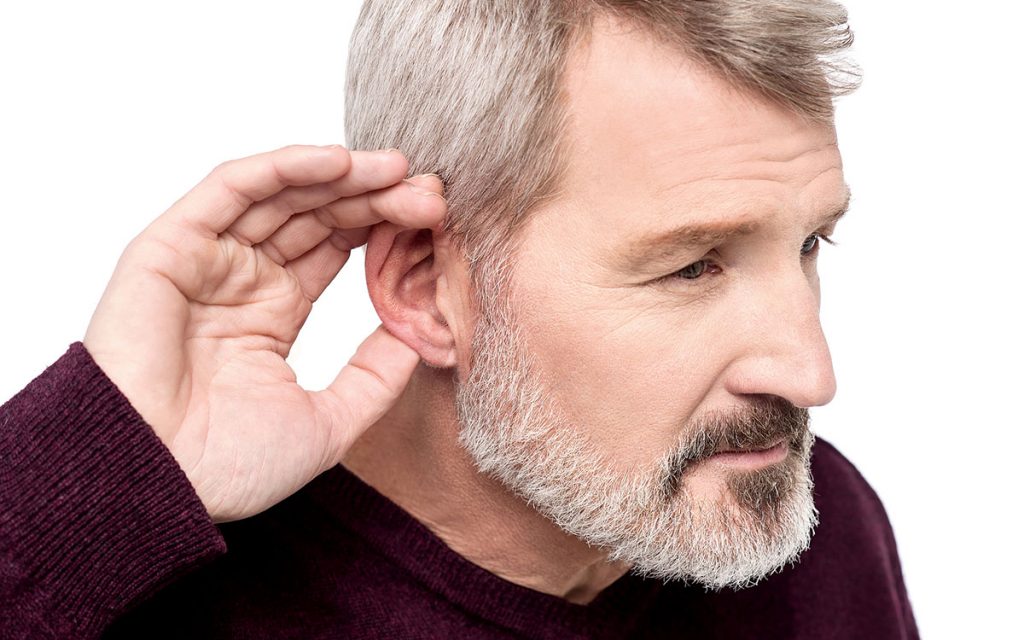You’re supposed to wear your hearing aids every day. But you’re also supposed to rinse out your milk containers before you recycle them. Sometimes we don’t do the things we’re supposed to. So yeah, you forget to take your hearing aids out of the nightstand drawer once in a while. Maybe you even go a day, or a week, or maybe a few weeks (a month?) without wearing your hearing aids.
That’s not great. Because there are a number of things that happen (or continue to happen) when you don’t wear your hearing aids. And, honestly, most of them are kind of bad.
Effects and consequences of going without hearing aids
Much of what happens when you don’t wear your hearing aids will impact both your hearing health and your social life–each with varying degrees of severity and intensity. The effects and consequences of neglecting to wear your hearing aids could include the following.
Your hearing will continue to diminish
Hearing aids are remarkable devices. Not only do they let you hear sounds that you otherwise wouldn’t have, but they also keep your auditory complex running smoothly (that’s the part of your brain responsible for interpreting sounds).
If you “forget” to wear your hearing aids and, instead, turn up your TV to an even higher volume, you could be doing additional damage to your hearing. Even if you’re not raising the volume, the lack of sensory input leads to issues with your brain. (It actually shrinks.) So if you don’t wear your hearing aids, your hearing will likely continue to get worse (which means you’ll need even more powerful hearing aids in the near future).
Social interactions will become more challenging (and less frequent)
You know those short conversations you have with the cashier as you’re checking out at the supermarket? They’re pleasant, we think. A nice little touch of humanity in a technology-driven world.
When you don’t wear your hearing aids, these simple social interactions can suddenly be much more challenging. You have to ask the cashier to repeat himself. Over and over. And after that, the conversation just quickly falls apart. Maybe that sounds trivial, but every inch you withdraw into yourself makes it that much easier to entirely isolate yourself socially. And that can cause even bigger problems.
Cognitive decline and hearing aids
When you isolate yourself socially, your brain gets a lot less exercise. Think about how invigorated (or exhausted) you can feel after a good conversation or a pleasant evening meal with your family. Without that exercise, certain cognitive processes can begin to decline (or decline faster). This could mean:
- Depression
- Memory problems
- Balance issues
- Declines in productivity or energy
But that’s not all. Because there are certain parts of your brain and nervous system that thrive on hearing sounds. Without stimulation, certain nerves will begin to weaken, and your auditory complex starts to atrophy. This can lead to an even more rapid cognitive decline (or, even in the best-case scenario, make adjusting to your hearing aids even harder).
Hearing aids keep your brain engaged, stimulated, and happy (more or less).
Loss of independence
It’s not unusual, as you age, to require a little more help. Maybe you hire a neighbor to mow your lawn or ask your son to swing by with groceries more often. If you aren’t wearing your hearing aid, you could be expediting the loss of independence that often accompanies aging.
When you don’t wear your hearing aids, it can quickly become more difficult to answer the phone or have a conversation with your neighbor. You might miss important weather alerts. Maybe you don’t hear your dog barking when there’s someone at the door or your cat meowing at 6 am when he’s hungry.
What’s the solution?
Wearing a hearing aid is not going to solve all of life’s problems, no matter how technologically inventive those little devices get. But they will solve many problems associated with not wearing your hearing aids.
If you’re having problems with your hearing aids or if they’re uncomfortable, that’s one thing (and you should talk to your hearing specialist about finding solutions to those particular problems).
But if you’re looking for reasons to avoid wearing your hearing aids, if you’re just forgetting them in the nightstand drawer, it’s worth taking some time to reflect on what might be gained by wearing them… and what might happen if you don’t wear your hearing aids.



